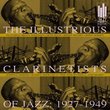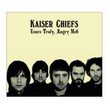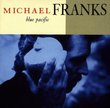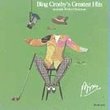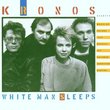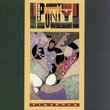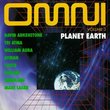| All Artists: Karsh Kale Title: Realize Members Wishing: 1 Total Copies: 0 Label: Six Degrees Original Release Date: 1/1/2001 Re-Release Date: 7/31/2001 Genres: Dance & Electronic, International Music, New Age, Pop Styles: India & Pakistan, India Number of Discs: 1 SwapaCD Credits: 1 UPC: 657036105126 |
Search - Karsh Kale :: Realize
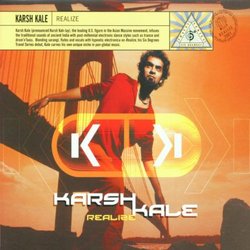 | Karsh Kale Realize Genres: Dance & Electronic, International Music, New Age, Pop
Karsh Kale (pronounced: Kursh Kah-lay), the leading U.S. figure in the Asian Massive movement infuses the traditional sounds of ancient India with post- millennial electronic dance styles such as trance and drum'n'bass. B... more » |
Larger Image |
CD DetailsSynopsis
Album Description Karsh Kale (pronounced: Kursh Kah-lay), the leading U.S. figure in the Asian Massive movement infuses the traditional sounds of ancient India with post- millennial electronic dance styles such as trance and drum'n'bass. Blending sarangi, flutes and vocals with hypnotic electronica on Realize, his Six Degrees debut, Kale carves his own unique niche in pan-global music. Karsh Kale has previously collaborated with artists such as DJ Spooky, Herbie Hancock and acclaimed producer Bill Laswell, whose revolutionary Tabla Beat Science project featured Kale alongside tabla master Ustad Zakir Hussain. Similarly Requested CDs
|
CD ReviewsGotta get it... bwazzali | Brooklyn, NY United States | 09/07/2001 (4 out of 5 stars) "At first hearing, the obvious comparison to Talvin Singh's recent release, "HA! can be made. Kale weaves both traditional Indian instrumentations, indian vocals, and varying breakbeats. Some of the tracks are very well made, inspired, and otherwise magnificient. Others seem abit contrived almost boring. Personally, I found T. Singh's album more compelling and more cohesive as a whole. Nonetheless, I do not think that this album is "just another asian underground" album. (Moreover I think Cheb i Sabbah embodies the "Orientalism" of Edward Said..ie: he is a poseur who ultimately knows little of the music and the culture. He should stick to spinning Khaled) I have seen Kale perform this album live twice in NYC (at Mutiny and Joe's Pub) and can attest to the fact that it sounds even better live. I think that the fact that this album not merely studio-piece is what makes this album interesting. It is meant to be performed, with a band, live...and not simply thrown in vinyl and waxed all night. Moreover I think Kale is a decent tabla player and a very decent percussionist. This album is not necessarily "groundbreaking" as Nitin Sawhney or Trilok Gurtu or for that matter Talvin Singh's works have been, but it certainly a "must have" for those who appreciate Asian Electronica/Asian Massive/Asian-inspired electronic breakbeat dub fusion/(or whatever you want to call it...just don't call it techno)" An important step 08/16/2001 (4 out of 5 stars) "some important things: Karsh Kale's realize crew have created an important recording in the world of asian music. This might be the first real melding of classical traditional hindustani music and DnB--so much so that the combination aspect of it disssappears. There is a new synthesis brewing here, and it's an updated form of classical music; while the forms of raga aren't entirely maintained, and the pieces are incredibly short when compared to classical indian pieces... they're in there. There are "quick" alaaps, rhythmic developments that mirror gats, and other classical forms as well. What I hear is nothing short of the seed of NEW CLASSICAL MUSIC.Now, with that said, it does have its drawbacks. parts of the recording don't transcend the recording process; they feel stitched together, and it takes a while for some peices to become the sum of their parts. And there are moments when it just seems that a piece is meandering. However, this is basically a debut record, and we can't justly hold that against the musicians.Another important thing: besides the bhajan done by. Ud. Sultan Khan, there isn't a trace of Indian folk music--especially Bhangra--on this record. No Dhol, no jump up beats. Nor is it the rhythmic marathon of tala matrix.There's something new being born on this record; it's gonna take a while for this 'modernization' of indian classical tradition to develop, but there's a hell of a lot of promise. keep even more of an eye out for this guy." Good Start But Lots of Room To Improve pma | 03/01/2003 (3 out of 5 stars) "I picked up Kale's CD a few months before seeing him perform with Tabla Beat Science at Stern Grove in San Francisco. His performance live outshone his studio effort. To me, "Realize" was full of potential - tracks that seemed like they were going to set out to be incredible and instead ended up being repetetive, lengthy, and not so creative. In this whole "Asian Massive" movement, I wouldn't rank this CD as the one to get. I'd definitely put MIDIval Punditz' self-titled CD and Talvin Singh's "Ha" much higher - nevertheless, Kale is very promising and I've faith that he'll only improve moving forward."
|

 Track Listings (13) - Disc #1
Track Listings (13) - Disc #1
